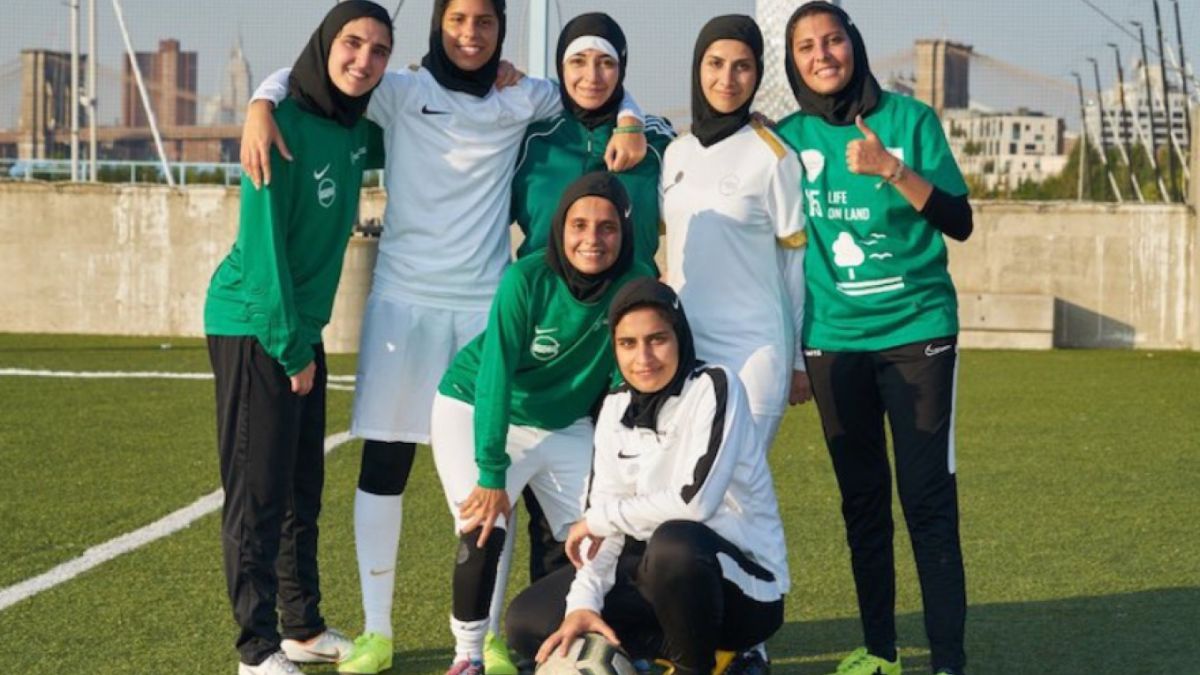Women’s football is an upstart and a stigmatized practice in Saudi Arabia, but it is fighting to stop being so. In the heat of international pressure (among others, from FIFA) it is opening loopholes so that women have access to the ball.
The transition from 2021 to 2022 is proving to be a key moment. The country has hired a coach for the first time, the German Monika Staab, to create a women’s team and also The first officially organized league was born, with 16 teams and more than 600 players involved.
In the offices of the Federation of Saudi Arabia on King Abdul Aziz Avenue in Riyadh, there is an attempt to appear, at least, open. Motivational and unity messages, in English, on the walls.
A headquarters where globetrotter Monika Staab has a new important role because she has been commissioned with a five-year plan and with the mission of training the first female coaches in the country.
A challenge to which she is accustomed because she has trained in eighty countries, including the women’s teams of Qatar and Bahrain, where she has had to live with the same barriers.
The first Saudi women’s team has been created very recently with 30 players after Staab inspected 400 candidates. The land is intended to be cultivated with this new league (the Women’s Football League) under the federative umbrella, which was born last November and which has seen in SC Challenge, an all-female Riyadh club, its first team of champions.
But as the members of the Jeddah Eagles narrated two years ago in AS when the Super Cup visited their city, “we teach girls that soccer is not a sport only for men, but it is not an easy path.”
And so much not. Because groping in federative circles in Riyadh conveys the distrust that still exists in a good part of Saudi society. “There are people who believe that if you are a woman and you play football, you cannot get pregnant.” They have very surprised faces.
In a country where gyms are still segregated by sex, a women’s league has been born with 600 players.
Prejudices and beliefs entrenched in the past that are still palpable in everyday elements (the women’s team training sessions are closely guarded to avoid male gazes) and in matters as basic as gyms. In Riyadh there is one on almost every major street, but they are segregated by sex.
Walls still to be overcome although the regime is trying to introduce female figures, such as the directive Shaima Al Husseini, visible head of Saudi Sports for All. An initiative to promote physical activity in women with initiatives such as the Women Fitness Festival, online, of course.
Little by little, without veil
No veil. Impediments that do not remove the momentum of these young soccer players who are becoming more and more encouraged to play without the traditional abaya or niqab or to use, failing that, a sports version that respects religious imperatives but is made with the latest generation materials developed by some of the big brands. Small advances in a country that didn’t allow women to drive or have a passport until 2017.
There is still a long way to go to see this newly hatched team having great successes. In the region, it is common to see slowdowns with women’s football, although events are beginning to pile up in the different countries of the Middle East, with the 2022 Qatar World Cup or Saudi Arabia’s candidacy for the 2027 Asian Cup. G
reat dates that can’t turn their backs on women.

